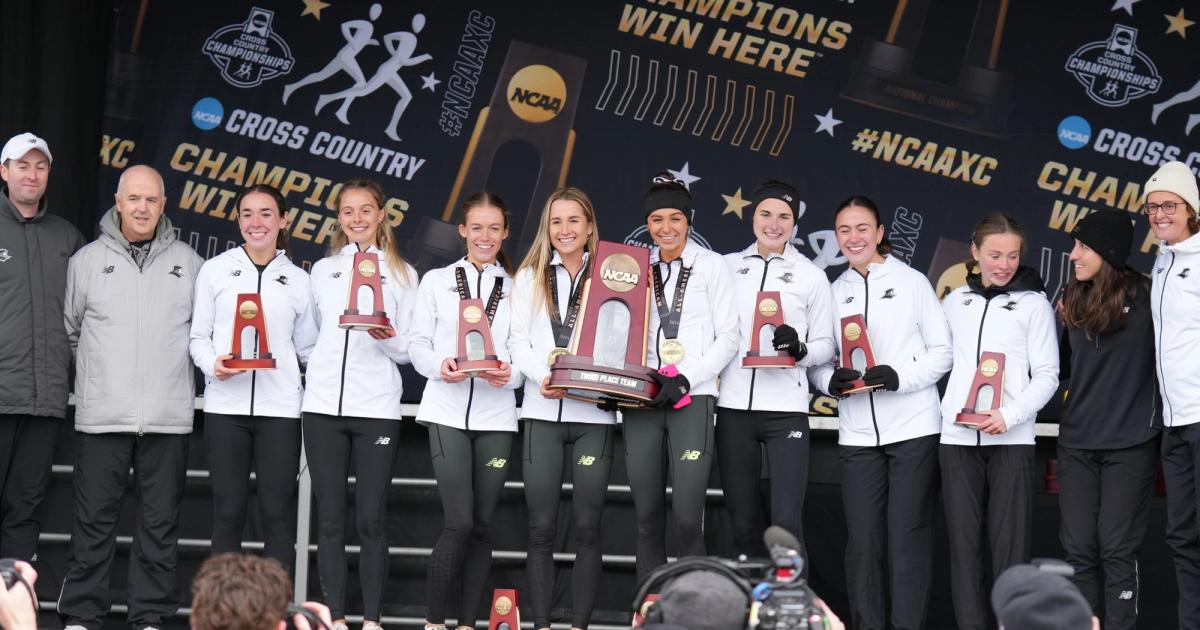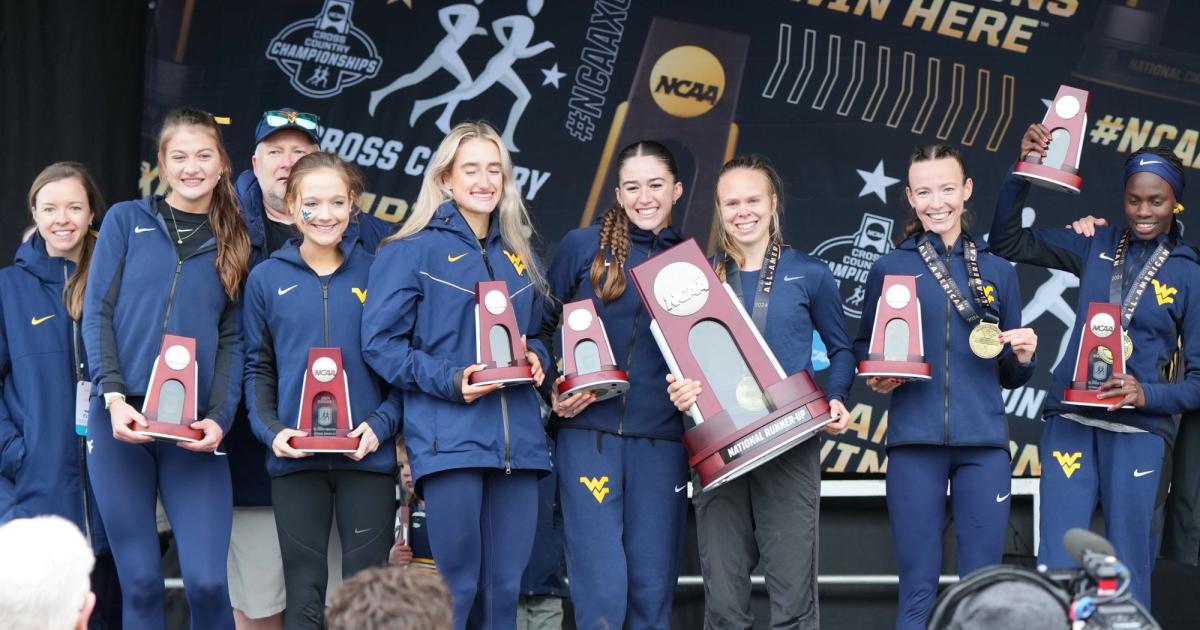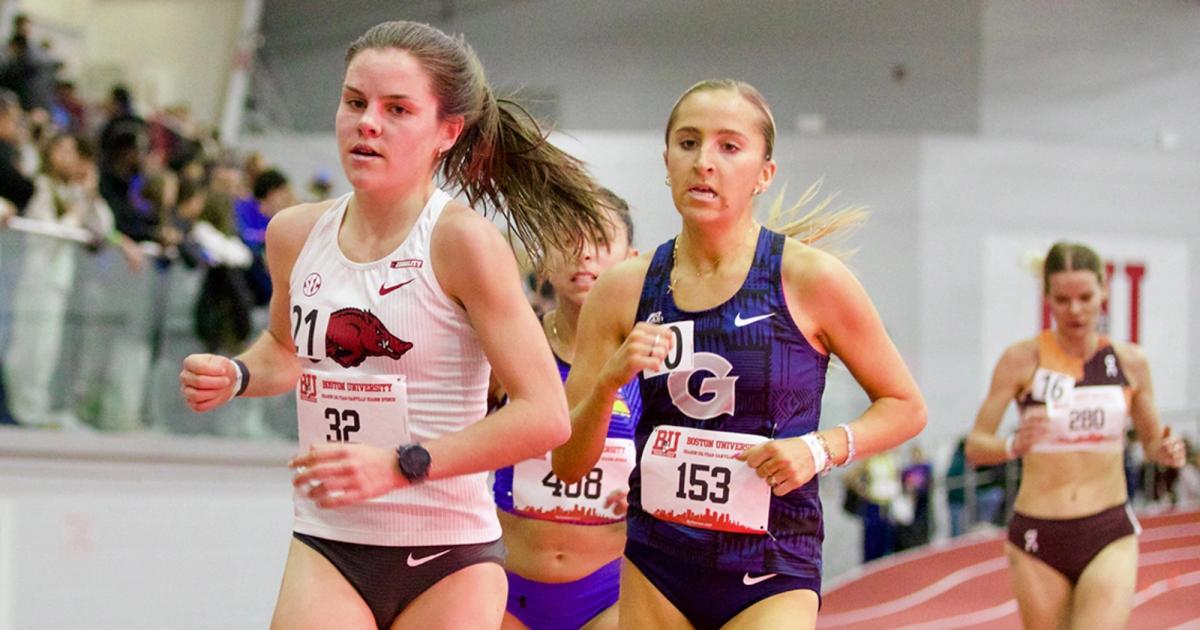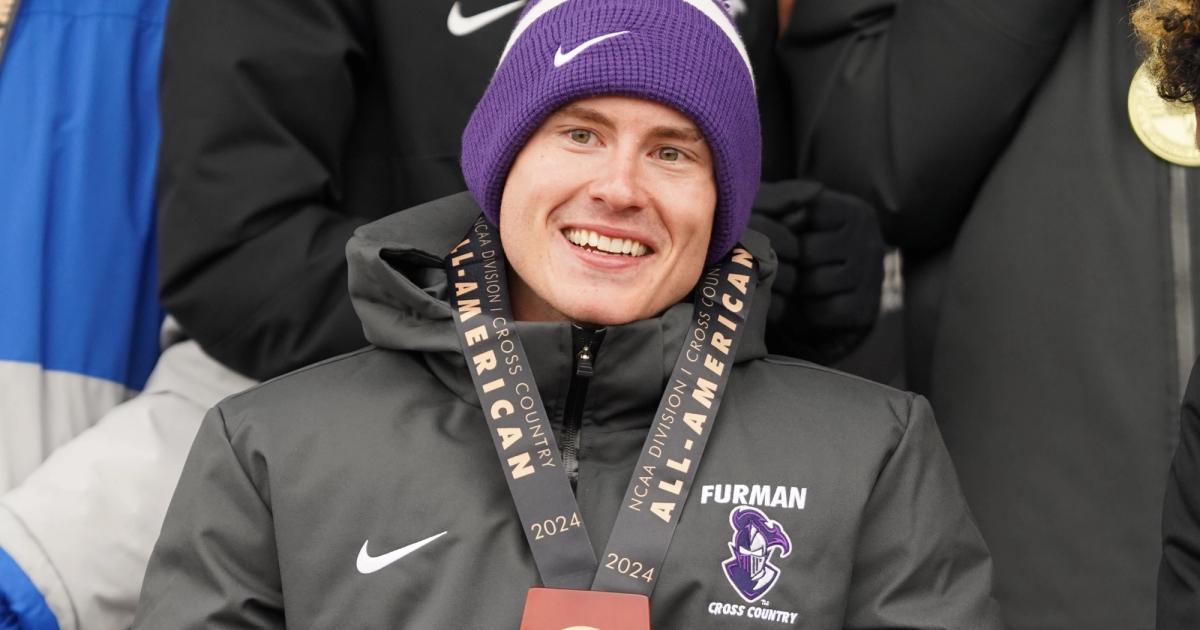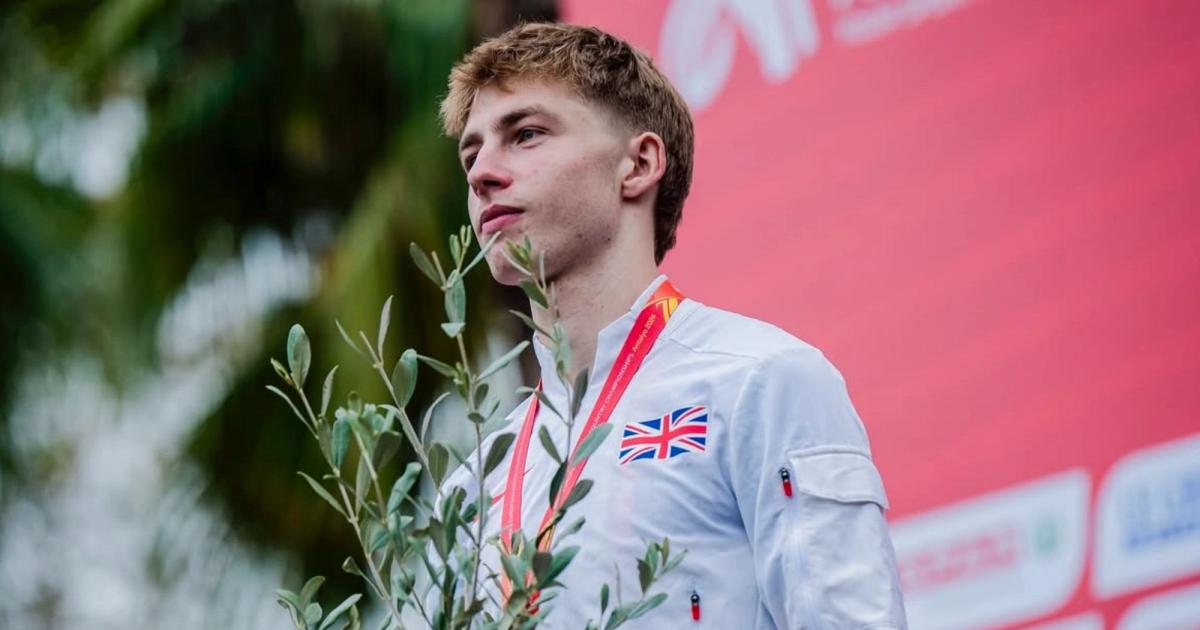By Jasmine Fehr
December 21, 2024
"We try to get across to our athletes that they need to live the life of an athlete, not just the life of a student. If you can do that, you're going to get better – and there's nothing better than seeing improvement in yourself every season."
Ray Treacy has dedicated the past 40 years to leading Providence's cross country and track and field programs, establishing himself as one of the most accomplished coaches in the NCAA. Some of his career highlights include coaching 11 Olympians, 72 NCAA All-Americans, and seven NCAA individual champions. Beyond his role at Providence, Treacy also coaches marathon American record holder Emily Sisson.
Before stepping into coaching in 1984, Treacy competed for Providence himself. As an athlete, he represented Ireland at three World Cross Country Championships, with his best showing in 1979 where he finished second.
Fast forward to 2024, when Treacy guided the women’s cross country team to a third place podium finish at the NCAA Cross Country Championship — despite being ranked no higher than ninth all season.
In our conversation, Treacy shares insights into the team’s standout performance, his coaching philosophy, how he fosters a positive team culture, and the importance of strong team leadership. He also reflects on what’s kept him coaching at Providence for four decades.
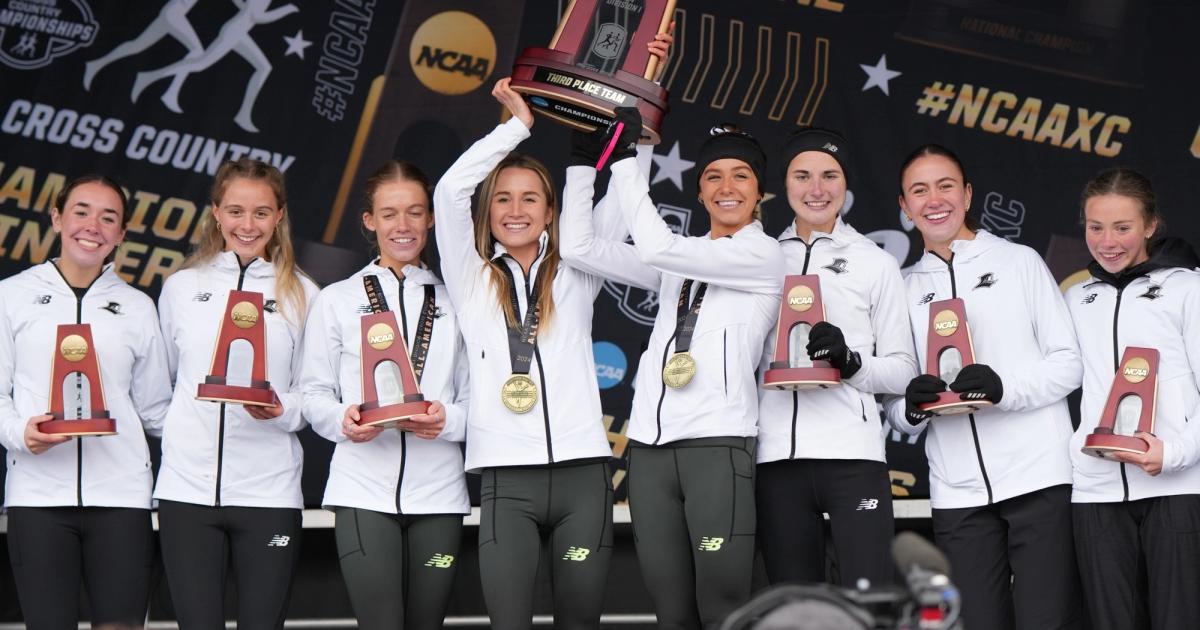
Mac Fleet / @macfleet
This interview has been edited lightly for length and clarity.
Jasmine Fehr: The women finished third at the NCAA Cross Country Championship. Now that you’ve had a few weeks to reflect, how are you feeling?
Ray Treacy: I’m feeling pretty good about it. We put a lot of effort into it. We were ranked between 9th and 12th throughout the season, but we always felt like we were a little bit better. As the season progressed, we got better. Around [the Princeton Classic] in the middle of October is the first time we really started to think we could be in the top four.
We got better and better as the weeks went along. Everything went well in terms of training and the weather was fantastic here this fall, so we didn't miss anything in training. We missed winning the Big East [Championship] by one point to Georgetown [42-43], so a lot of our team was upset over that. But that's the way it goes.
We got better again in two weeks at Regionals. We were very fortunate at Regionals as well because it was in New Hampshire. There were dire warnings about what it could be like in New Hampshire in the middle of November, but it turned out to be fantastic. The people there, especially UMass Lowell, did a great job with the course as well. We came out of there in one piece and were very excited about the Championship the next Saturday.
We talked a lot about it in the week beforehand. They believed in themselves. I said to them the night before: ‘There's three teams that believe they can win this thing and there's about six other teams that believe they can be in the top four.’ I said that going off history from over 40 years of coaching, one of those three teams would win, one of the other teams would finish on the podium, and that third team would be off the podium. There would be two places on the podium for those other six teams. That was the attitude we went in with.
I said that if they all ran equal to their best run of the season, we'd be in the top four. They all did that and even better. We were expecting three in the top 40, but we got three in the top 24. We were very happy with that.
"I said that if they all ran equal to their best run of the season, we'd be in the top four. They all did that and even better."
Placing in the top four seemed like a possibility as the season went on. Was finishing third a surprise to you?
Anything can happen. I kept telling the ladies that we’ve brought teams that finished fourth in the past that were not anywhere near as good as them. You just have to hit your marks and placings on the day, forget about everybody else, and then count up the totals at the end of the race. Just focus on yourself, try to get the very best out of yourself on the day, and we'll see where that lands us when the race is over.
We made progress throughout the race. I think we were 11th after 1K, 10th after 2K, then we moved up to 4th at 5K. Our freshman [Anna Gardiner] ran past 31 people in the last 1K. She was our fifth scorer and it was the fourth time she was a scorer all season. She finished 57th at Regionals. I think she was picked by somebody to finish second-last in the race. She had a fantastic run.
You need things like that to finish on the podium. That’s what you need to get, and we got that on the day.
"Just focus on yourself, try to get the very best out of yourself on the day, and we'll see where that lands us when the race is over."
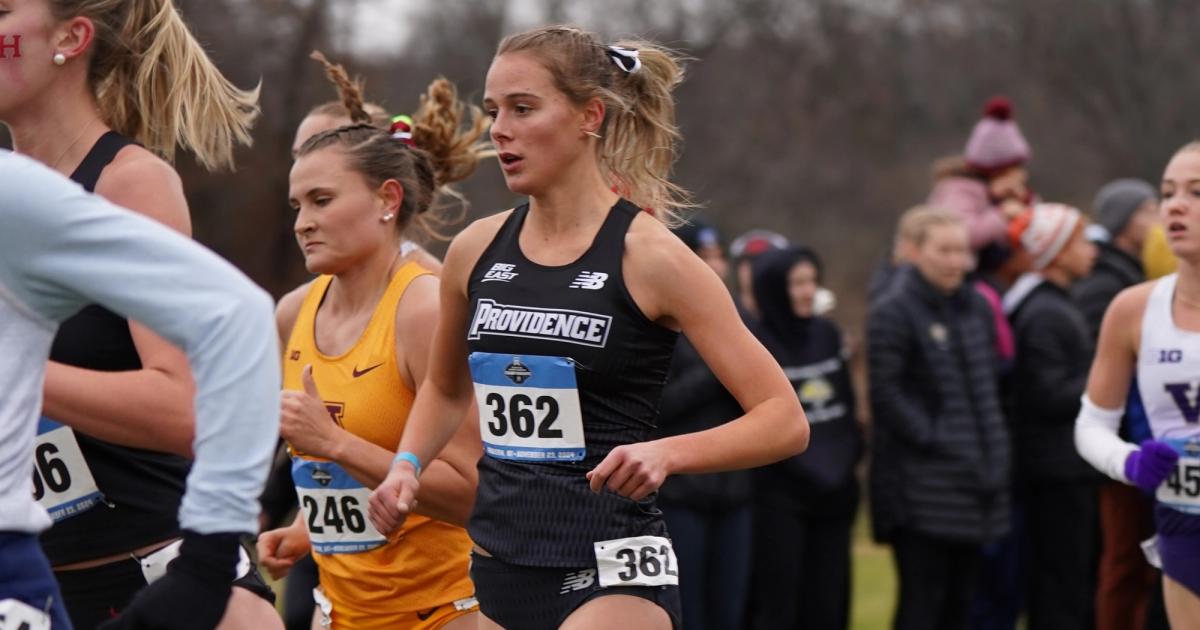
Anna Gardiner | Mac Fleet / @macfleet
One of the highlights was watching the team’s excitement after finding out they got third. Can you share about the celebrations afterward?
It was great. They're an emotional group. [Kimberley May] is very emotional. She gets everyone going. They’ve gone through a lot, especially Shannon [Flockhart] and Laura [Mooney]. They arrived on campus during COVID and had to spend two weeks in quarantine. In their first year at NCAAs down in Tallahassee, Shannon was 160th, Kim was 213th, and Laura was 60th. But they've made great progress over the last couple of years.
This followed up on the past track season where Kim and Shannon began to believe they could run a good cross country season. Then the addition of Alex [Millard] late in the process was a huge plus for us. That gave us the opportunity to have three All-Americans. We just had to fill in behind them.
But the celebrations went on – and maybe that’s one of the reasons why I’m sick! But it was a great time. We had a great celebration with our administration and department here. We're a small school, so anything like this brings out a lot of people. Everyone was very happy with the team. They were introduced at the basketball game on the Tuesday night after, so that was a great thing for them.
We just move on now. As I said to them before the race, the race is Saturday – but on Sunday, 360 schools have moved on to indoor track. And so will we.
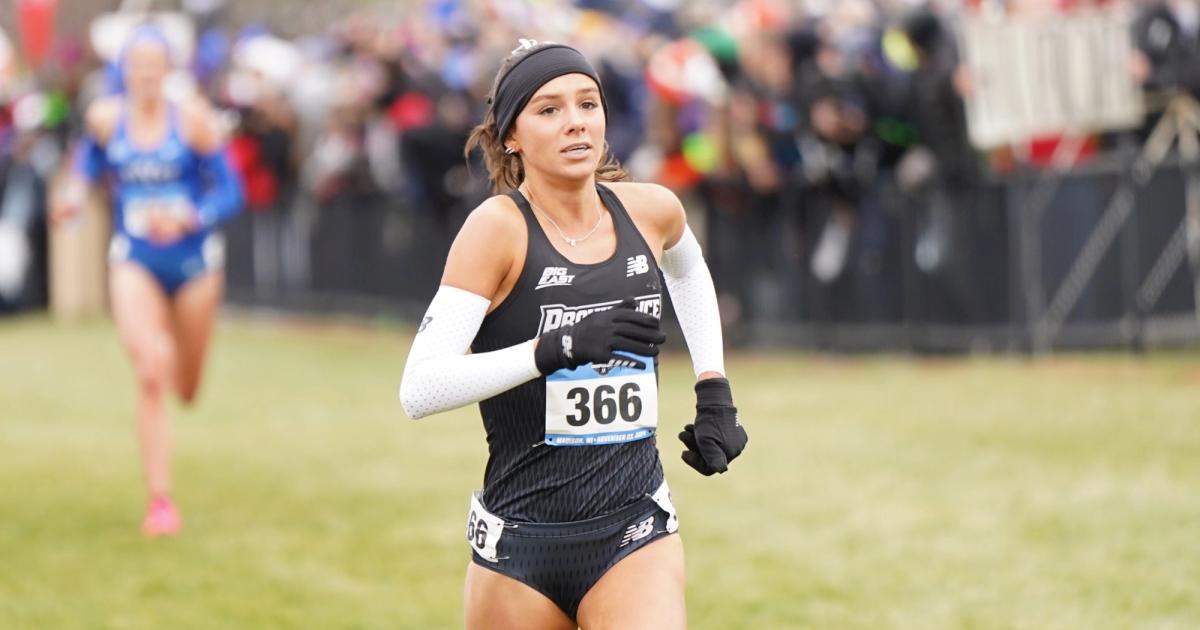
Kimberley May | Mac Fleet / @macfleet
How has the team improved so much over the past few years?
The key to any improvement is staying healthy. For the most part, they’ve stayed healthy. That's one of the main things we work on: making sure we're smart about training and using a bit of common sense. I advise them to tell me if there's anything going on in their lives that may affect their training. They could have been up late studying for an exam or they could have woken up with a sore throat. Just use common sense.
Last indoor season got the team excited after seeing what Kim and Shannon were doing. A lot of work was put in over the summer and they came back in pretty good shape. Not in great shape, as shown by Wisconsin [at the Nuttycombe Invite]. We were 4th at Nuttycombe, but we got better and better as the season went on.
As I said earlier, the weather was great up here. There was nothing that we didn't get done in terms of training and everyone stayed healthy. The eight or nine people we started with on September 1st are the eight or nine people that we had the weekend of NCAAs. That doesn't happen very often. People often fall by the wayside, so we were very fortunate to have had those top eight at the end of the season.
"The eight or nine people we started with on September 1st are the eight or nine people that we had the weekend of NCAAs. That doesn't happen very often."
Sometimes half the battle is just making it to the starting line healthy!
That's right. We focus on getting plenty of rest, being in a good routine of going to bed at the same time every night and getting up at the same time. We try to live the life of a semi-pro runner and avoid the usual antics that go on at a college campus on a weekend – especially during those 12 or 13 weeks that we're focused on cross country.
How do you create a positive environment and atmosphere among the team?
You need great leaders to have a positive environment on the team. Shannon has always been a great leader since the day she walked onto campus. Kim has also become a great leader. You need people like that to keep everyone on board with what you're trying to do.
Leaders can be good or they can be bad. If you have good ones, it works out really well. Some of the best teams we've had in the past have had great leaders.
Our men's team worked hard in the year 2000 with [Keith] Kelly winning NCAAs. He's one of the greatest leaders we've ever had on the men's side. I would put Shannon and Kim up with him. What we’ve been able to do this year on the women's side has been through keeping everyone responsible for what they should be doing on a daily basis and living the [athlete] life for themselves.
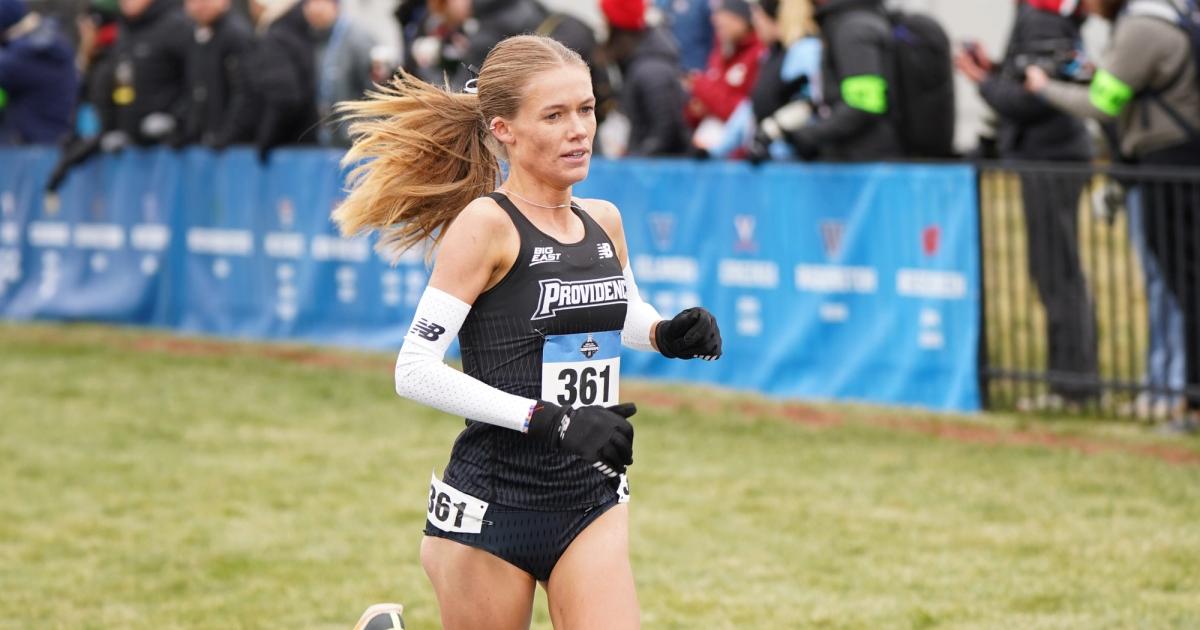
Shannon Flockhart | Mac Fleet / @macfleet
Can you share your coaching philosophy and how it's evolved throughout your time at Providence?
It's common sense. That's what I would call my philosophy. We all talk about volume and what kind of workouts you should do, but when you're dealing with 18 to 22 year olds, you have to be flexible. I would say that I'm flexible in terms of what we need to do on a daily basis.
It's different when I'm dealing with a freshman on the team as opposed to [marathon American record holder] Emily Sisson when I'm giving her a schedule to train for the marathon. The basic philosophy may be the same in terms of what we're trying to do, but the volume is different.
That's why I try to get them to think that they’re semi-pros. They're in college: all they have to do is go to class, study, run, and look after themselves. They're not out in the real world yet. If you do all the right things by being consistent and getting enough rest, you can move in the right direction and get better.
We try to get across to our athletes that they need to live the life of an athlete, not just the life of a student. If you can do that, you're going to get better – and there's nothing better than seeing improvement in yourself every season.
Part of my philosophy is also to be training consistently every single day. If you don’t get sick and don't get injured, you're going to get better every day. Over the years, we've seen that even though we're a small school – around 4,000 students – we can produce pretty good cross-country teams. The women have been in the top ten at cross-country NCAAs in 20 of the last 35 years. That’s consistency.
"It's common sense. That's what I would call my philosophy."
We’re witnessing a lot of changes in college athletics right now in terms of scholarships and roster caps. What is your perspective on all these changes?
I think it's going to be problematic for Olympic sports down the road. I think programs are going to be dropped, especially on the men's side. We'll see how that's going to impact Olympic sports – maybe not in 2028, but in 2032.
For years now they’ve been dropping men's swimming programs. Hopefully that won't happen to us, but nobody knows what the results are going to be of this. Our school is in the Big East, which is a top basketball conference. That obviously will help us, but we don't know what's going to happen down the road. It's just a minefield, really. We're just waiting to see what happens.
What has kept you coaching at Providence for 40 years?
I graduated from Providence College myself. My wife graduated from Providence College. My brother graduated from Providence College. Having the opportunity to work at your alma mater is always so special. I haven’t [coached] at any other place, so I don't know. But I think it means a little bit more to have success for your alma mater.
I've been very fortunate with the people I've had to work for: fantastic athletic directors and great presidents who support our program. When you enjoy and look forward to coming to work everyday, you can’t beat that. No money can pay for that. Everyone in our family is happy living in Providence and the environment is great. We'll see how many more years we have ahead of us.
"When you enjoy and look forward to coming to work everyday, you can’t beat that. No money can pay for that."
What are you looking forward to most for indoor and outdoor season?
I'm not looking beyond indoor season right now. I think we have a really good group that we're excited about. We had really good distance medley and 4x800m relay teams last year. In the 4x800m [at Penn Relays], Shannon dropped the stick about 20 yards from the line when we were battling with Washington.
We want to rectify things like that this year and not have any more mishaps. I think we had more mishaps last year than I had my other 39 years of coaching. They're all out of the way now hopefully! I would expect Kim, Shannon, and Alex to qualify for nationals along with a distance medley team indoors.
After that, we’ll focus on Penn Relays, NCAA first round [East Regionals], and getting as many people as possible to qualify for NCAAs. For next year's cross-country team, we have to rebuild and start all over again because we lose our top four. But that's okay. That's a new challenge and we look forward to that too.
___________________
Keep up with all things track and field by following us across Instagram, X, Bluesky, Threads, and YouTube. Catch the latest episodes of the CITIUS MAG Podcast on Spotify and Apple Podcasts. For more, subscribe to The Lap Count and CITIUS MAG Newsletter for the top running news delivered straight to your inbox.
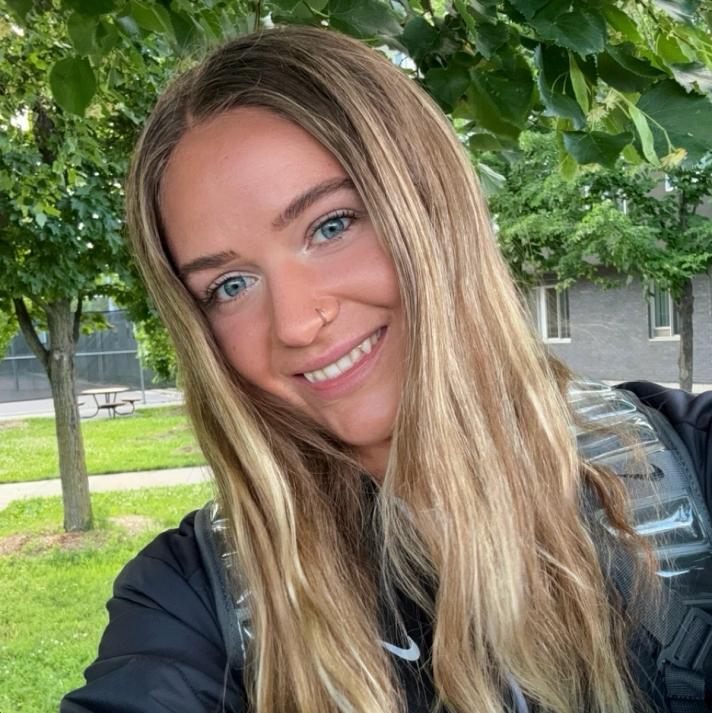
Jasmine Fehr
Jasmine Fehr produces the CITIUS MAG Podcast, manages our website, and shares content across our socials. She’s a marathon runner training in Flagstaff, Arizona. Her collegiate running career spanned the University of Portland and the University of Tennessee, where she earned a Bachelor’s degree in Psychology and Master’s degree in Communications.
